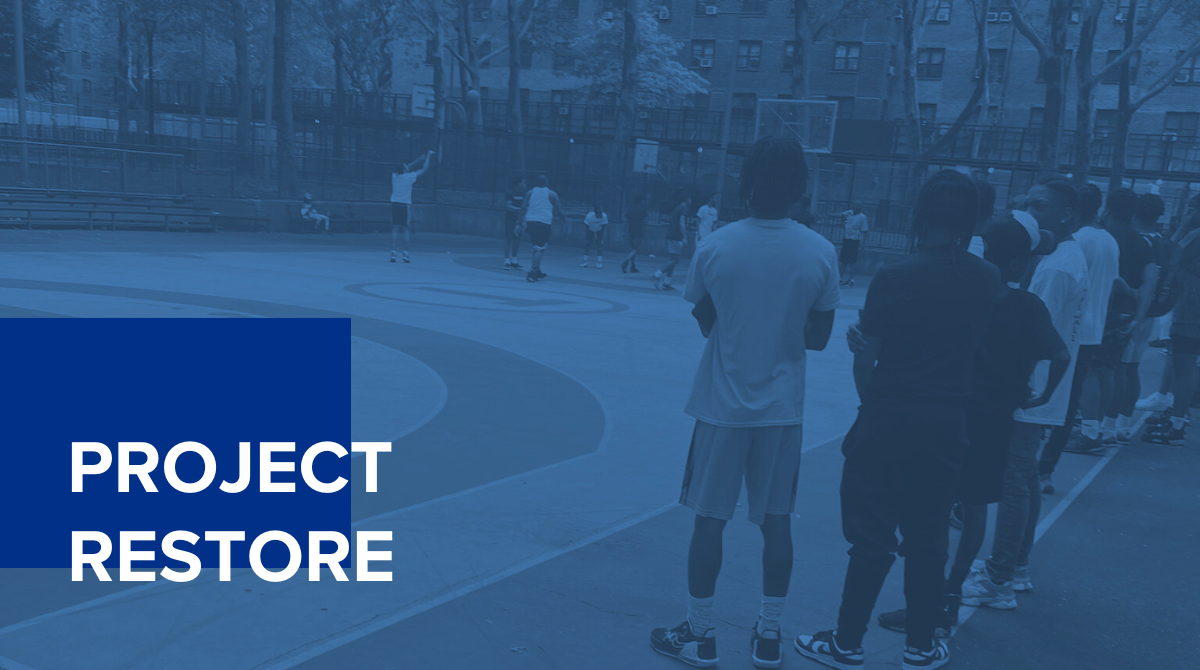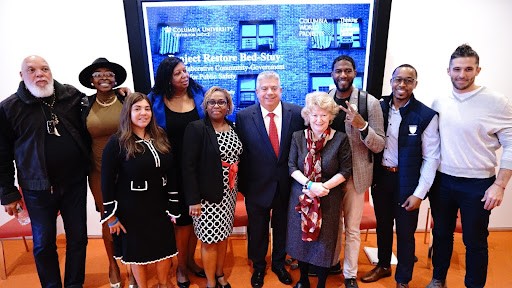
Project Restore Bed-Stuy (PRB) was a 12-month community-based gang violence intervention program developed on the premise that violence prevention is best achieved through addressing barriers to personal growth, including economic insecurity, disconnection from education and employment, untethered social isolation, and unhealed trauma.
Implemented by a team that included formerly incarcerated and gang-involved individuals, in collaboration with University and District Attorney’s office stakeholders, PRB was intended to serve as a pilot program for violence interruption in New York City, with scalable potential.
PRB supported 30 young men connected to rival street crews (locally affiliated gangs) in Bedford-Stuyvesant (Police Precincts 79 and 81), who were trapped in a cycle of retaliatory gun violence. Participants were provided with the opportunity to transform their lives by increasing their personal and professional skills, addressing deep-rooted personal trauma, and developing a commitment to community safety and peaceful coexistence.
We really bonded and text and call each other now for support. We didn't have that before Project Restore.
Project Restore had three core objectives:
- To reduce gang-related violence and improve community safety by de-escalating inter-gang conflict in impacted communities.
- To alter the life trajectories of participants and support their transition towards successful adulthoods (e.g. employment, education, stable housing, and community engagement).
- To reduce participant contact with the criminal justice system.
Project Restore Bed-Stuy concluded in January 2024. In November 2024, in collaboration with Columbia World Projects, the PRB team hosted a symposium to release its evaluation report and discuss the outcomes of the program as well as the need for more funding for continuation and expansion. Engaging community leaders, policymakers, and advocates, the event highlighted PRB's significant successes and its potential as a scalable model for community-based violence prevention.
The findings showed full program completion by all participants, high participant engagement, an increase in community safety, prevention of incarceration and retaliatory shootings, and more.
Read the report here.

For more information on PRB’s success and how community-based programs can reduce violence sustainably, contact: Al Young at [email protected]
